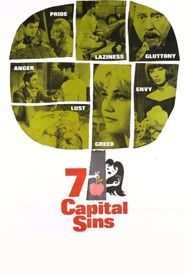Eugen Ionescu was born in 1909 in Slatina, Romania, to Eugen Ionescu Sr., a lawyer, and Therese Zicard, a French lady.
In 1913, his family relocated to France, where he spent several years before returning to Romania with his father in 1924, following his parents' divorce.
Eugen Ionescu subsequently studied in Craiova and later attended the University of Bucharest, where he pursued degrees in Literature and Philosophy, graduating in 1929.
After completing his education, he returned to Paris in 1938 to work on his doctorate thesis.
Eugen Ionesco, as he later came to be known, did not find his unique literary voice until the 1950s, when he emerged as a pioneer of the avant-garde 'theatre of the absurd' movement.
Throughout his career, he wrote numerous influential plays, including "The Bald Soprano", "The Lesson", "The Chairs", "The Killer", and "Rhinoceros", which remain some of his most celebrated works.
Eugen Ionesco passed away in 1994 and was laid to rest in the Montparnasse cemetery in Paris, a testament to his enduring legacy as a visionary playwright and writer.

















